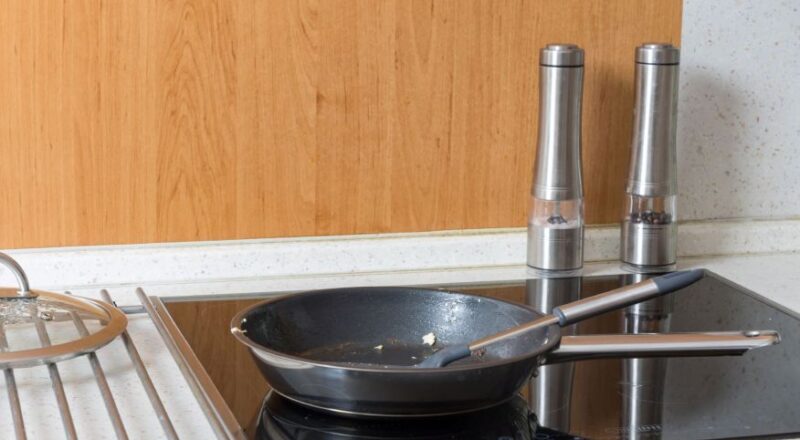Induction cooking is gaining popularity for its efficiency and precision. However, choosing the right cookware that works with induction is crucial to make the most of this technology. In this article, we will explore various aspects of induction-compatible cookware to help you make informed decisions.

Understanding Induction Cooking
Induction cooking uses electromagnetic fields to heat the cookware directly. This method is different from traditional gas or electric cooking, where heat is transferred from a burner to the pot. For induction to work, your cookware must be made of magnetic material.
The Science Behind Induction Cooking
Induction cooktops produce a magnetic field that induces electric currents in the cookware. This process generates heat directly in the pan, making it efficient and fast. For a deeper understanding, you can read more about induction cooking on Wikipedia.
Key Features of Induction-Compatible Cookware
Not all cookware is suitable for induction cooking. Here are some key features to look for:
Magnetic Base
The most important feature is a magnetic base. If a magnet sticks to the bottom of the cookware, it is compatible with induction cooktops.
Flat Bottom
A flat bottom ensures maximum contact with the cooktop, improving efficiency and performance. Learn more about avoiding cold spots in your cooking.
Material Composition
Materials like cast iron, stainless steel, and certain types of aluminum and copper are induction-friendly. You can check if your cast iron works on induction with simple tests.
Popular Types of Induction Cookware
Various cookware types are available for induction cooking. Each has its advantages and disadvantages.
Cast Iron
Cast iron is a favorite for its excellent heat retention. However, it can be heavy and requires proper maintenance. If you’re using cast iron, ensure even heat distribution to avoid uneven browning.
Stainless Steel
Stainless steel is durable and resistant to rust and staining. It often comes with an aluminum or copper core to improve heat conductivity.
Enamel-Coated Cookware
This type combines the benefits of cast iron with a non-reactive enamel coating. It offers excellent heat retention and is easy to clean.
Advantages of Induction Cooking
Induction cooking is not only fast but also energy-efficient. Here are some benefits:
Safety
Induction cooktops remain cool to the touch, reducing the risk of burns. They also turn off automatically when cookware is removed.
Energy Efficiency
Since induction heats the cookware directly, there is less heat loss, making it more energy-efficient than traditional methods.
Precise Temperature Control
Induction allows for precise temperature adjustments, perfect for tasks like melting chocolate or simmering sauces.
How to Choose the Right Induction Cookware
Consider the following factors when selecting cookware for your induction cooktop:
Budget
Prices vary based on material and brand. Set a budget before shopping.
Cooking Needs
Consider what you’ll be cooking most often to determine the size and type of cookware you need.
Durability
Look for cookware that can withstand daily use and cleaning.
Maintaining Your Induction Cookware
Proper maintenance extends the life of your cookware and ensures optimal performance.
Cleaning
Use appropriate cleaning methods for different materials. For example, avoid harsh abrasives on enamel-coated cookware.
Storage
Store your cookware properly to avoid scratches and damage. Consider using protective pads between stacked items.
Common Issues with Induction Cookware
Like any cooking method, induction has its challenges.
Noise
Some cookware can produce noise during cooking. This is usually due to the magnetic interaction between the cooktop and cookware.
Smoky Cooking
If your cast iron becomes smoky, it’s essential to understand why and how to prevent it. Learn more about smoky cast iron on induction.

FAQ
What types of cookware are compatible with induction cooktops?
Cookware made from magnetic materials like cast iron and stainless steel is compatible with induction cooktops.
How can I test if my cookware is induction-compatible?
Use a magnet to check. If it sticks to the bottom of the cookware, it is compatible.
Why does my induction cooktop make noise?
Noise can occur due to the magnetic field interaction. It is generally harmless and varies with different cookware.
For more insights into the pros and cons of induction cooking, you can refer to this Consumer Reports article.
This article contains affiliate links. We may earn a commission at no extra cost to you.

